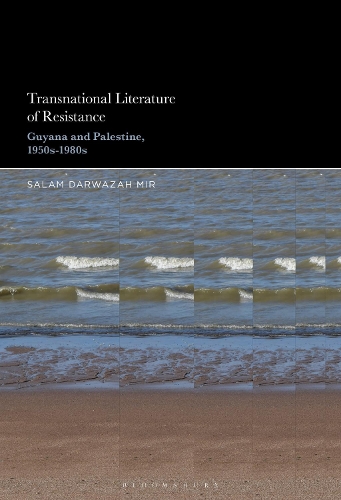
Transnational Literatures of Resistance: Guyana and Palestine, 1950s-1980s
(Hardback)
Publishing Details
Transnational Literatures of Resistance: Guyana and Palestine, 1950s-1980s
By (Author) Professor Salam Darwazah Mir
Bloomsbury Publishing USA
Bloomsbury Publishing USA
11th July 2024
United States
Classifications
Professional and Scholarly
Non Fiction
Literary studies: postcolonial literature
Political activism / Political engagement
Middle Eastern history
821.00998810904
Physical Properties
Hardback
232
Width 152mm, Height 229mm
Description
Fills a gap in comparative studies, interrogating strategies of Empire in dominating the Indigenous and linking two modern cultures from the Global South. Transnational Literatures of Resistance compares and contrasts resistance literatures from Guyana a British exploitation colony and Palestine a settler colony at a specific historical moment. Salam Darwazah Mir contests the provinciality and Eurocentric focus of comparative literature; delivers the disciplines universal objectives; and expands the disciplines practice by comparing two literatures and histories from the Global South. Mir situates the literatures within their wider historical and literary heritage, a move that links the two countries from within the colonial/imperial framework. She argues that the British invasion of the protectorate of British Guiana in 1953 and the founding of the settler colony in Palestine in 1948, with imperial Britain at the helm, are colonial acts to strengthen and sustain Empire. The two colonial projects are evidence of the protean nature of Empire that evolves, reinvents itself, and reconstructs new comparable ploys and strategies of controlling the Global South. Within this context, the emergence of poetry of resistance in both countries at this historical juncture is part and parcel of other forms of resistance during decolonization, linking the formerly colonized and the presently colonized people in the Global South. It is examined from within the framework of postcolonial theory, as Mir reads poetry as the voice of the people in their demands for freedom, equality, and national independence. Resistance poetry is thus born out of the need to assert identity, redress invisibility and erasure, reclaim national space and land, and reconstruct the history of the Indigenous.
Author Bio
Salam Darwazah Mir is Associate Professor Emeritus of English, Lasell University, USA, where she launched Middle Eastern and postcolonial studies in 2009 and taught several literature courses. She is also a book review editor at Arab Studies Quarterly.
